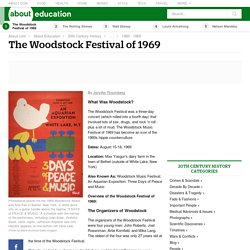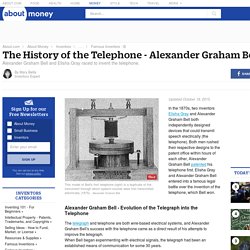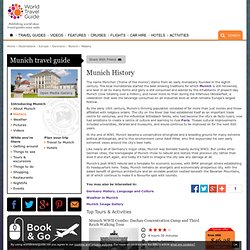

The Roaring Twenties - Facts & Summary. Prohibition was not the only source of social tension during the 1920s.

The Great Migration of African Americans from the Southern countryside to Northern cities and the increasing visibility of black culture—jazz and blues music, for example, and the literary movement known as the Harlem Renaissance—discomfited some white Americans. Millions of people in places like Indiana and Illinois joined the Ku Klux Klan in the 1920s. To them, the Klan represented a return to all the “values” that the fast-paced, city-slicker Roaring Twenties were trampling. Likewise, an anti-Communist “Red Scare” in 1919 and 1920 encouraged a widespread nativist, or anti-immigrant, hysteria. This led to the passage of an extremely restrictive immigration law, the National Origins Act of 1924, which set immigration quotas that excluded some people (Eastern Europeans and Asians) in favor of others (Northern Europeans and people from Great Britain, for example).
The isle of wight festival 1969. Woodstock - A History of the Woodstock Festival of 1969. By Jennifer Rosenberg What Was Woodstock?

The Woodstock Festival was a three-day concert (which rolled into a fourth day) that involved lots of sex, drugs, and rock 'n roll - plus a lot of mud. The Woodstock Music Festival of 1969 has become an icon of the 1960s hippie counterculture. Dates: August 15-18, 1969 Location: Max Yasgur's dairy farm in the town of Bethel (outside of White Lake, New York) Also Known As: Woodstock Music Festival; An Aquarian Exposition: Three Days of Peace and Music Overview of the Woodstock Festival of 1969: The Organizers of Woodstock The organizers of the Woodstock Festival were four young men: John Roberts, Joel Rosenman, Artie Kornfeld, and Mike Lang.
Roberts, an heir to a pharmaceutical fortune, and his friend Rosenman were looking for a way to use Roberts' money to invest in an idea that would make them even more money. Woodstock. Geschiedenis van Cannabis op wiet-info.nl. Geschiedenis van Cannabis Cannabis wordt al eeuwen gebruikt, de vroegste bewijzen hiervoor zijn gevonden in china. 6000 jaar voor de geboorte van christus werden cannabiszaden al gebruikt als consumptie.

Later werdt de hennep gebruikt in textiel en in 2700 vc is het eerste gebruik van de medicinale werking van cannabis terug gevonden. Ook de Romeinen en Grieken waren op de hoogte van de werking van cannabis en gebruikten het als medicijn. In West-Europese landen werd cannabis in de Middeleeuwen vooral gebruikt voor het maken van touw, kleren en als windkering. In de Verenigde Staten beleefde cannabis gebruik een belangrijke opleving gedurende het verbod op alcohol in de jaren twintig. Al in de 19 eeuw werdt in de nederlandse apotheken extracten van cannabis verkocht. In 1972 verscheen de eerste coffeeshop in Nederland. The History of the Telephone. Updated October 18, 2015.

In the 1870s, two inventors Elisha Gray and Alexander Graham Bell both independently designed devices that could transmit speech electrically (the telephone). Both men rushed their respective designs to the patent office within hours of each other, Alexander Graham Bell patented his telephone first. Elisha Gray and Alexander Graham Bell entered into a famous legal battle over the invention of the telephone, which Bell won. Alexander Graham Bell - Evolution of the Telegraph into the Telephone The telegraph and telephone are both wire-based electrical systems, and Alexander Graham Bell's success with the telephone came as a direct result of his attempts to improve the telegraph. When Bell began experimenting with electrical signals, the telegraph had been an established means of communication for some 30 years. Although a highly successful system, the telegraph, with its dot-and-dash Morse code, was basically limited to receiving and sending one message at a time.
Munich history - Discover Munich. Munich was founded (1158) by Henry the Lion, duke of Saxony and of Bavaria near a settlement (Munichen) that was established in Carolingian times.

In 1255 it was chosen as the residence of the Wittelsbach family, the dukes of Bavaria and later became (1506) the capital of the dukedom. During the Thirty Years War, Munich was occupied (1632) by Gustavus II of Sweden. In 1806 the city was made capital of the kingdom of Bavaria. Under the kings Louis I (1825–48), Maximilian II (1848–64), and Louis II (1864–86), Munich became a cultural and artistic center, and it played a leading role in the development of 19th- and 20th-century German painting. Munich (Bavaria, Germany. Early History in Munich. 0Google + The Bridge over the Isar Munich is a young city compared with some of its neighbors.

It had its origins in 1156 in an unpleasant struggle between two feudal rulers over the right to impose tolls on the traffic moving along the salt road that stretched between the cities of Salzburg, Hallein, Reichenhall, and Augsburg. Up to that time, Bishop Otto von Freising had controlled a very lucrative toll bridge across the Isar River, directly on the salt route. The History of Munich. The name München (‘home of the monks') stems from an early monastery founded in the eighth century.

The local monasteries started the beer brewing traditions for which Munich is still renowned, and beer in all its many forms and glory is still consumed and adored by the inhabitants of present-day Munich (now totalling over a million), and never more so than during the infamous Oktoberfest, a celebration that sees the beverage consumed on an industrial level at what remains Europe’s largest festival. By the early 16th century, Munich’s thriving population consisted of far more than just monks and those affiliated with religious orders. The city on the River Isar had established itself as an important trade centre for centuries, and the influential Wittelbach family, who had become the city’s de facto rulers, now had ambitions to create a centre of culture and learning to rival Paris.
History of munich - Google zoeken. History of munich - Google zoeken.